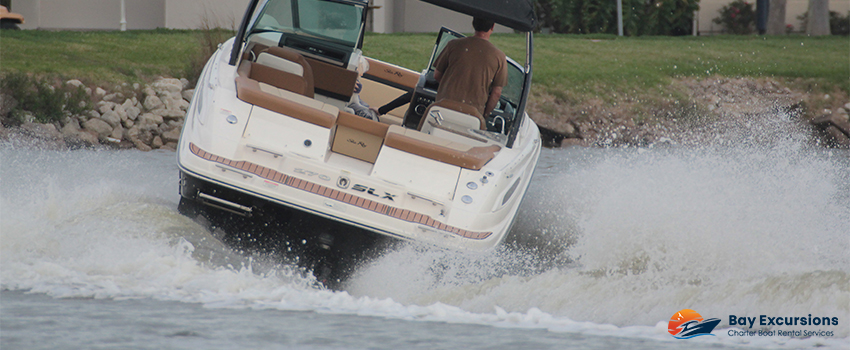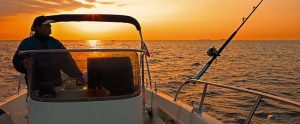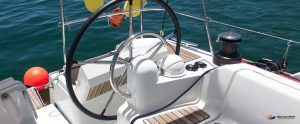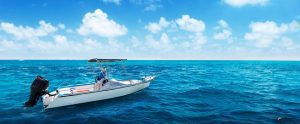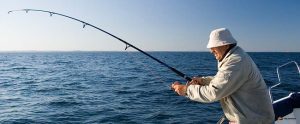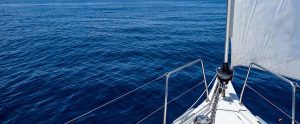If you’re new to boating, it’s easy to make mistakes.
To make the boating experience fun, people tend to forget some rules and safety precautions. Even the oldest salts slip up, but that isn’t an excuse to jeopardize safety on the water.
Regardless if you’re new to or experienced in boating, it’s essential to know what common boating mistakes to avoid. Water adventures come with dangers; knowing these boating safety tips can make a huge impact on safety.
10 Boating Mistakes To Avoid
Avoid these common mistakes for a safe boating adventure:
1. Failing To Check the Weather Forecast
Before every trip, it’s essential to watch the news and weather forecasts. Extreme weather conditions pose many dangers, especially out in open water.
Check both land- and sea-based forecasts. If there are hurricanes, strong winds, and other extreme weather conditions on nearby land, there’s a high chance that you’ll also experience them while out in the water.
2. Mooring the Boat Improperly
Many people forget to moor their boats properly during island-hopping adventures, leading to boats floating away from the dock. Remember to tie moorings correctly; boats can float away due to strong winds or other external factors, even in calm waters.
3. Running Aground
Running aground is a boating mistake that happens more frequently than you think. Even veteran boaters make this mistake sometimes. The key to avoiding it is by doing advanced research about the location you’re cruising, like tide changes and underwater hazards.
When you run aground, several things can happen. If you run aground in muddy or sandy locations, your boat might get scratches or minor damages. If you run aground in rocky locations, be prepared for costly repairs. There are also cases when boats run aground on coral reefs. Not only does this damage the boat, but it also causes severe ecological effects on marine life.
If you can’t find information about the location you’re cruising, it won’t hurt to slow down a bit to avoid running aground.
4. Cruising With Dry Engines
Except for those air-cooled and electric-type engines, boat engines also need water. It cools the engines, prevents overheating, and lubricates the engine’s water pump impellers.
When you use a boat with a dry engine, you increase the risk of mechanical breakdown and damage to the system.
Take note, use softened water; calcium and other minerals found in hard water damage marine engines.
5. Slamming Into the Dock
Pulling up to the dock is challenging for both novice and experienced boaters. External factors like wind and current affect a boat’s movement; these raise the odds of slamming into the dock, damaging the boat.
Avoid this from happening by slowing down as you approach. Try to practice before leaving so you know what to do when you return.
6. Not Enough Anchor Rope
Some boating experts don’t release enough anchor lines when they find a good fishing spot, drifting away from the spot where they stopped.
Anchoring a boat may seem like an easy task, but it’s not as simple as you think. You have to ensure that the line is secure and remember to put out a length of seven to ten times the depth of water where you drop down the anchor.
7. Running Out of Gas
If you fail to check the fuel tank or cruise further than expected, you will run out of gas. You might get stuck in the middle of the sea without any help in sight.
Prevent this from happening by constantly checking your tank and following your itinerary.
8. Failing To Plan the Itinerary
Many boaters know how to operate boats safely but don’t plan their itineraries. This is a big mistake, especially when charting unfamiliar bodies of water. You might get lost or run out of gas, so make sure to plot your course.
Most boats nowadays have chart plotters and other devices that help navigate bodies of water. If your boat doesn’t have any of these, install marine navigation applications on your phone.
9. Overloading
Before heading out, make sure your boat is carrying less than its maximum capacity. The heavier your boat is, the more chances of water entering it. The weight of your boat can affect its stability and seaworthiness, which may cause some difficulties in facing strong winds and waves.
10. Forgetting the Drain Plug
The last boating mistake on our list is forgetting about the drain plug — a small device that often gets overlooked. Always remember to plug your boat’s drain plug before sailing, or your boat might sink.
Enjoy Your Time on the Water
If you want to experience exhilarating yet safe boat adventures, look no further than Bay Excursions.
We are the go-to source of the best John’s Pass, FL, boat tours. We also offer tours in different areas of Florida. Our boats come with complete safety gear and amenities and undergo regular inspections to ensure safety. For inquiries, feel free to contact us. Call us today to schedule your tour.
We’re looking forward to giving you the highlight of your Florida trip!
